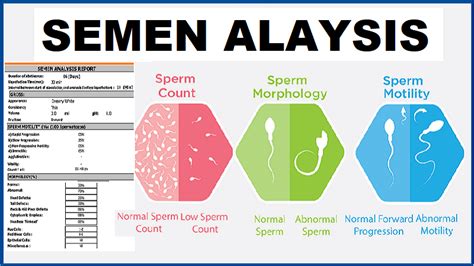Semen Analysis: A Holistic Approach to Fertility
Infertility affects millions of couples worldwide, and understanding male fertility is crucial for successful conception. A cornerstone of male fertility assessment is the semen analysis, a comprehensive laboratory test evaluating various aspects of semen quality. However, viewing semen analysis solely as a diagnostic tool is shortsighted. A holistic approach, integrating lifestyle factors, emotional well-being, and advanced diagnostic techniques alongside the standard analysis, offers a more complete picture and enhances the chances of successful treatment.
What is a Semen Analysis?
A semen analysis, also known as a spermogram, examines several key parameters of semen:
- Volume: The total amount of ejaculate.
- pH: The acidity or alkalinity of the semen.
- Sperm Concentration: The number of sperm per milliliter of semen.
- Sperm Motility: The percentage of sperm that move progressively.
- Sperm Morphology: The percentage of sperm with normal shape and structure.
- Liquefaction Time: The time it takes for the semen to become liquid after ejaculation.
- White Blood Cells: The presence of white blood cells, indicating potential inflammation.
Abnormal results in any of these areas can indicate potential fertility issues. However, it's vital to remember that a single semen analysis might not provide the complete picture, and repeat testing is often recommended.
What are the common reasons for abnormal semen analysis results?
Several factors can affect semen quality, and understanding these is key to a holistic approach.
Lifestyle Factors:
- Diet: A diet lacking in essential nutrients, particularly antioxidants, can negatively impact sperm health. A balanced diet rich in fruits, vegetables, and whole grains is crucial.
- Smoking: Smoking significantly reduces sperm count, motility, and morphology. Quitting smoking is a vital step in improving fertility.
- Alcohol Consumption: Excessive alcohol intake can negatively affect testosterone production and sperm quality. Moderate consumption, if any, is recommended.
- Stress: Chronic stress can disrupt hormonal balance and negatively impact sperm production. Stress management techniques, such as yoga, meditation, or regular exercise, are beneficial.
- Obesity: Obesity is linked to hormonal imbalances and reduced sperm quality. Weight management through diet and exercise is essential.
- Environmental Toxins: Exposure to environmental toxins, such as heavy metals and pesticides, can harm sperm health. Minimizing exposure is crucial.
Medical Conditions:
- Varicocele: Enlarged veins in the scrotum can increase testicular temperature, impairing sperm production.
- Infections: Infections in the reproductive tract can affect sperm quality and motility.
- Hormonal Imbalances: Imbalances in testosterone or other hormones can significantly impact sperm production.
- Genetic Factors: Certain genetic conditions can cause abnormalities in sperm development.
What are some advanced diagnostic techniques beyond a basic semen analysis?
While a standard semen analysis is the starting point, more advanced tests may be necessary for a complete assessment:
- MAR-test (Mixed Antiglobulin Reaction Test): Detects antibodies that may be attacking sperm.
- Semen Culture: Identifies bacterial infections in the semen.
- DNA Fragmentation Test: Assesses the integrity of sperm DNA, which is crucial for fertilization.
- Testicular Biopsy: A procedure to examine a sample of testicular tissue for sperm production issues.
How can emotional well-being impact fertility?
Stress, anxiety, and depression can negatively impact both male and female fertility. A holistic approach includes addressing the emotional well-being of the couple. Therapy, stress management techniques, and support groups can significantly improve the chances of conception.
What is the role of a holistic approach in improving fertility?
A holistic approach to fertility incorporates several aspects beyond a simple semen analysis:
- Comprehensive Medical History: A detailed review of medical history, including lifestyle choices, medication usage, and past illnesses.
- Lifestyle Modifications: Addressing unhealthy lifestyle factors such as smoking, excessive alcohol consumption, and poor diet.
- Stress Management: Implementing techniques to manage stress, such as exercise, meditation, or therapy.
- Nutritional Optimization: Ensuring adequate intake of essential nutrients for optimal sperm production.
- Advanced Diagnostic Testing: Employing advanced tests to identify underlying issues not detectable with a standard semen analysis.
- Couple Counseling: Addressing emotional and relationship aspects that may influence fertility.
By taking a holistic approach, healthcare providers can identify and address the underlying causes of male infertility, significantly improving the chances of successful conception. Remember, a thorough evaluation and personalized treatment plan are essential for achieving optimal results. This integrated approach moves beyond simply interpreting the numbers from a semen analysis to understanding the complex interplay of factors influencing male fertility.

